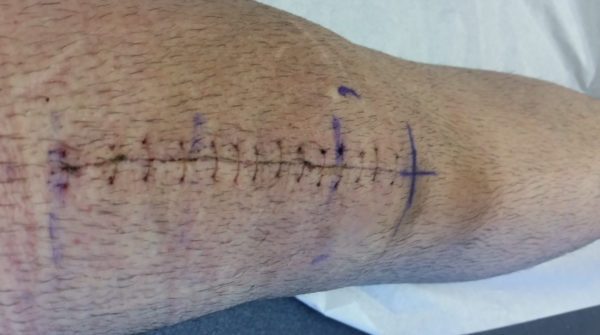A couple of weeks ago my brother wrote a piece about access and ownership of medical records. My brother isn’t a healthcare professional but he is an intelligent, tech-savvy individual that has been forced to navigate the healthcare system due to his own plight as well as time spent helping with my mother’s care prior to her death following complications of a liver transplant. I have also written about this myself, albeit from a slightly different perspective.
“Seriously though, why should our medical records be locked in a system we cannot access? We can learn something from Twitter, Facebook, and Google. We should own our medical records — via an open standard — and allow doctors and hospitals to ask our permission to see them. Much like friending someone on a social network. The doctor looks me up, asks if they can see my records, I get a message saying the doctor would like access to my records, and I choose to let them or not. My choice, my records.â€
Robert brings up an interesting concept. How one would go about creating such an open standard, and where that data would be stored are two things that have to be addressed. To be absolutely “neutralâ€, I suppose the U.S. government would have to handle both. That’s not comforting. Remember, the government created the DMV and IRS. Yikes!
Allowing people to keep, store, and manage their own healthcare data is clearly not an option. There are those that would be quite good at it and those that would suck at it.
I often consider banking when I think about healthcare data. Many of us (all?) use credit and ATM cards, ATM machines, banks, mobile pay, and so on daily. We never really think about our data, i.e. who has it, where it’s stored, how to access it, etc. However, when I need to look at something, the information is nearly always readily available and retrievable. Also, when I go to buy a car or home, finance something, etc. it always seems easy for those that need access to the information to get it. I don’t “own†my financial data, per se, but it’s always there for me and whoever else needs it.
“Case in point. I have a problem with one of my knees. In 2004 I had surgery to remove cartilage, a bone spur, and some arthritis from that knee…Fast forward to 2017 and that knee has become an issue…I made an appointment with my family doctor to discuss the problem. Before going I tried to locate the doctor that did the surgery back in 2004, but she’s moved on. I contacted her old group to see if they had my records. Nope…I visit my doctor last week [and] explain there is a history here but I cannot tell her exactly what was done. My only explanation is I had surgery in 2004 to do X, Y, and Z. But I don’t know the exact terms nor do I know where the cartilage was removed or how much…She orders and x-ray and while she’s doing this she explains she’d like to do an MRI but the Insurance company requires she order an x-ray and order physical therapy before doing the MRI.â€
I had a similar experience a couple of years ago. I fell down my stairs at home — seriously, that happened — and ruptured my quadriceps tendon. I’ve never felt pain like that in my life. I thought I broke my leg. Anyway, I ended up in a local ED where I got x-rays, an ultrasound, and an MRI. Diagnosis: ruptured quadriceps tendon. Solution: surgery.
Fast forward a couple of days later in the surgeon’s office. I had a copy of all my records from the ED visit on a CD. I thought I was being proactive. Not so. The surgeon’s computer and EHR system were not compatible with the data stored on the CD from the ED. The surgeon re-ordered two separate MRI’s. No kidding.

“This [the system] is brokenâ€. Yep, there is no question that the system is broken. Just ask anyone that’s navigating it for the first time. Even my mother, who spent years in and out of hospitals secondary to her liver condition struggled to navigate the system at times.
“…I know the EHR is only a tiny fraction of our dated system but I’d like to have a complete medical history. It’s my history…To fix this will take eons. Medicine is so far behind when it comes to technology. Look at systems like Epic. It is seen as a leader in its field, but it’s a closed system. How does that benefit anyone but Epic? It doesn’t….We need an Open API with services offered by many providers that are patient driven. Allow data to move between systems. Don’t make your money by holding patient data hostage. Make your money by building the better service.â€
My brother echos the sentiment of Ralph Waldo Emerson, “Make a better mousetrap, and the world will beat a path to your door.” I wish it worked that way in healthcare. But for some reason we continue to accept garbage. I am certainly not familiar with all EHR’s, but I have worked with several. They’re all terribly bloated and cumbersome. Not only that, they offer little in the way of cooperative information exchange. Sure, they all claim to play well with others, but my personal experience — along with that of many others — paints a different story.
My brother and I don’t agree on much, but I think we’re on the same page here. We may not agree on which route to take, but we certainly have the same destination in mind. And that destination is better access to and sharing of healthcare data.Â